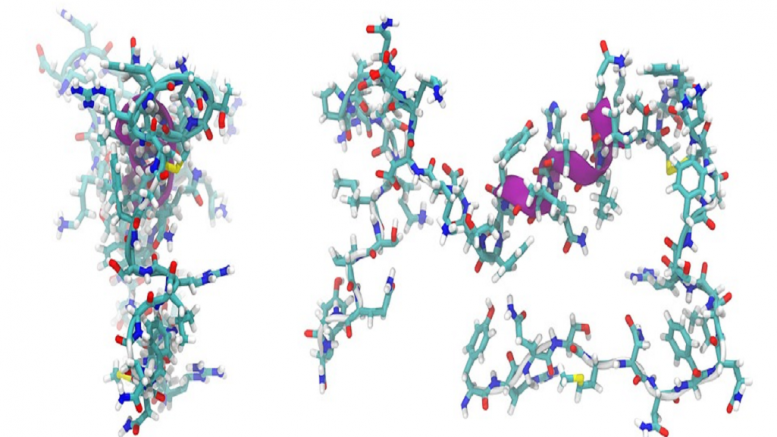If you are keen on skin-improving products or have done some research online on recent studies by scientists on these peptides, then you already know about their possible anti-aging properties. It is also reported to repair, hydrate and smooth the skin.
While collagen has been the primary component of anti-aging products, peptides have cemented their position as an effective new focus for the skincare sector.
The word might remind you of high school biology, and you might be wondering what they are all about. The science behind it is broken down below. We look at what they are, what they do to the skin, and how you can get more of them.
What are They?
They are chains of amino acids that are formed when amino acids link together. This chain is known as an amino-peptide. They are significant building blocks that makeup protein in the body. This link between them forms a basis of all proteins such as elastin, keratin, and the magic buzzword collagen.
Collagen peptides make about 80 percent of the dermis. There are plenty of studies by scientists on peptides and their effect on animals. These research studies have found that these peptides play an important role in making the skin firm, radiant, and youthful. You can learn more about research peptides on this website.
The proteins in your skin are essential in protecting the texture, elasticity, resilience, and strength of the skin. Without proteins to make the skin firm, many conditions occur, i.e. less ‘bounce’, the appearance of wrinkles & a change in the texture of the skin, dry hair and brittle nails.
How They Care For Your Skin
Many may be wondering why the skin needs them if they are already present in the body. The answer is that the rate of its production slows significantly as you grow older. In your 20s, the skin begins to produce an average of one percent less every year. The production then stops entirely after the age of 40.
The effect on your skin varies since there are different types. There are over 100 types, and each affects the skin differently. Some are more effective on the skin than others. An example is carrier peptides that boost collagen by transporting trace minerals to the skin. Others like enzyme inhibitor peptides slow down the breakdown of collagen by the skin.
Peptides act as a form of ‘signal’ for the body that tells it the part that needs more production of collagen. If you are injured in the elbow, peptides will send a ‘signal’ for the body to focus on the affected area. They inform your body when to counter premature aging by producing hyaluronic acid and collagen. Exogenous peptides in the form of serum and moisturizers trick the skin into producing more collagen.
How to Generate More
Topical skincare products are essential in enhancing skin appearance. However, it is important to evaluate each product’s formulation regarding their ability to go through the skin barrier and whether its components are stable. It is crucial to seek advice from a dermatologist to find the best products for your skin.
Finding the ideal product for your skin might be an uphill task. Some experts recommend products that can be easily washed off, such as a serum, eye cream or moisturizer. They can be used as alternatives to a peptide-enriched cleanser.
Copper collagen products are also known to generate collagen. They also help in maintaining the collagen produced. Other useful products contain vitamin C, niacinamide and antioxidants. Additionally, collagen-rich meals like bone broth are essential in improving your skin.



Be the first to comment on "All You Need to Know About Peptides For Your Skin"